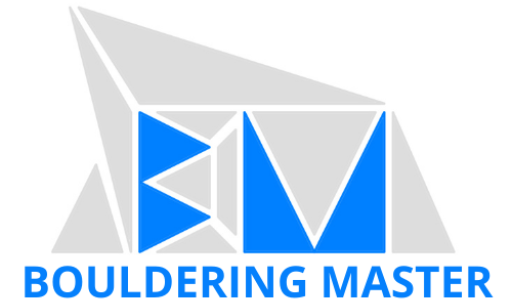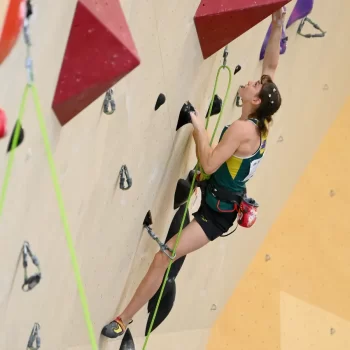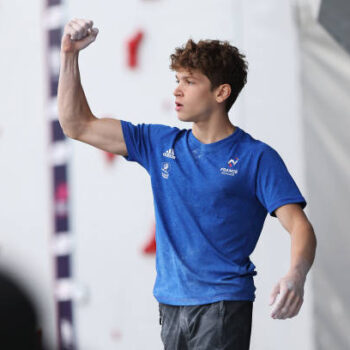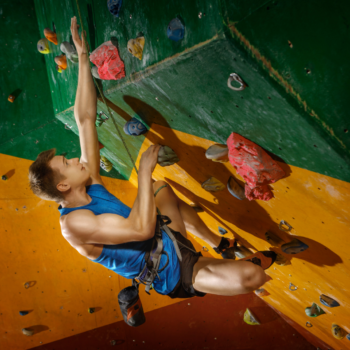Age Diversity in Competitive Climbing (in 2023)
Table of Contents
In the world of competitive sport climbing (or also known as comp climbing), there is a diversified community of professional climbers defying age stereotypes and redefining the limits of athletic prowess. This article explores the age diversity in competitive climbing by examining the age distribution of professional climbers that participated in the 2023 IFSC World Cup.
What is the age diversity in competitive climbing?
Bouldering Master has compiled a list of professional climbers that have competed in the 2023 IFSC World Cup [Adult category] across the disciplines of bouldering, lead climbing, and speed climbing. Among those 106 climbers, approximately 44% are female climbers and 56% are male climbers. If you would like to look into detail about which climbers are included in the list, please check out Bouldering Master’s PROFESSIONAL SPORT CLIMBERS LIST.
We, at Bouldering Master, have created a population pyramid chart (bar graph) that shows the distribution of ages across the group of 106 professional comp climbers divided down the center between male and female climbers. The Adult category for 2023 World Cup is reserved for athletes that are 16 years of age, so this graph starts from the youngest (16 years old) at the bottom to the oldest (39 years old) at the top.
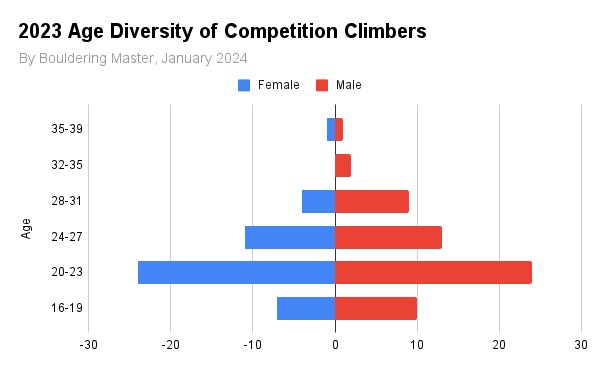
Results of Study on Age Diversity in Competitive Climbing (in 2023)
As seen in the above chart, the age of professional climbers participating in the IFSC World Cup falls heavily between the age of 20-23 for both female and male climbers. Showing that a majority participating on the competitive Adult level of comp climbing are relatively young.
- Average Age for Female Climbers (rounding up): 23 years old
- Average Age for Male Climbers (rounding up): 23 years old
Based off of 2023 World Cup Winners
| Gold Medal | Silver Medal | Bronze Medal | |
| Avg. Age for Female Climbers | 25 years old | 22 years old | 24 years old |
| Avg. Age for Male Climbers | 22 years old | 23 years old | 22 years old |
Why do professional climber’s ages skew so low?
Ageism in Competitive Sport Climbing
What is ageism? According to ageism.org, ageism is the discrimination against an individual strictly on the basis of their age. If you research ageism in sports, you find that the average age that athletes are said to hit their physical peak is far earlier than your average work employee is stereotyped to peak.
Ageism in compeititive sport climbing is no exception to this type of discrimination. As we look at the age diversity in competitive climbing we can see that top climbers over the age of 30 are an anomaly. With approximately 90% of climbers in this study under the age of thirty.
Looking further into this study, it also shows that only 4.25% of female climbers are ≥30 years old compared to 15.25% of male climbers. Showing an even greater lack of representation of veteran climbers across genders.
Are veteran climbers still winning competitions?
- 14.04% of World Cup podium positions were taken by male climbers ≥30 years old
- 1.75% of World Cup podium positions were taken by female climbers ≥30 years old
There are still veteran climbers, such as Adam Ondra (30 years old), Jakob Schubert (32 years old), Jain Kim (35 years old), and Bassa Mawem (39 years old), who bring a wealth of experience, mental and physical training, and deeper understanding of the sport when they compete.
Yet, often times when these veteran climbers are commented on, their age is often brought into the discussion. Due to the abnormality of climbers over the age of 30 competiting at this level of competition, it often comes as a surprise to see
Emergence of Young Climbers
While experienced climbers are still making waves, there’s also a surge of young climbers making their mark in the competitive arena. For example, Japan’s 17 year old Sorato Anraku took home 6 World Cup medals in both boulder and lead climbing during the 2023 World Cup season. He finished the season not only as the 2023 IFSC World Cup boulder overall titleholder, but also the 2023 IFSC World Cup lead overall titleholder.
Sorato Anraku is just one example of many young climbers that are making a name for themselves in the climbing community. Despite their age and lack of experience, they are challenging veteran climbers and setting new limits in the sport.
What do you think about the age diversity in competitive climbing?
Do you think veteran athletes should make room for younger athletes? How does age diversity impact the overall competitiveness and skill level within competitive climbing competitions? Let us know your thoughts on age diversity in competitive climbing in the comments down below.
